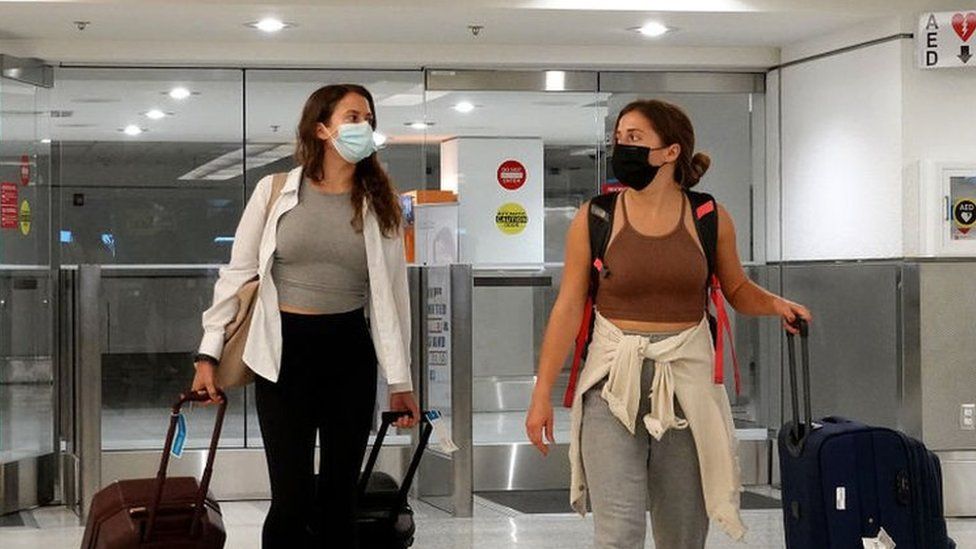This article is more than
4 year oldWhy children aren’t getting sick from coronavirus

While the coronavirus death toll continues to rise and authorities prepare for the global outbreak to be declared a pandemic, doctors have found that one unlikely age group is less at risk of becoming infected.
Australia’s chief medical officer Dr Brendan Murphy said one of the surprising features about coronavirus was how few children seemed to have been identified among the confirmed cases.
“It’s very unusual compared to influenza,” he said.
“We don’t know whether children might be getting the disease but (their symptoms) are so mild they are not being picked up, or they’re not becoming sick, or whether they are somehow less susceptible.”
RELATED: Follow the latest coronavirus updates
So far, out of the more than 87,000 confirmed coronavirus cases worldwide, no children have been reported as having serious complications. Limited reports of children with COVID-19 in China have described cold-like symptoms, such as fever, a runny nose and cough.
“In adults, they are reacting quite violently because perhaps they have seen a previous coronavirus infection and that’s set up the immune system to react inappropriately and excessively,” Professor Robert Booy from the National Centre for Immunisation Research and Surveillance told the ABC.
According to data from the Chinese Centre for Disease Control (CCDC), there is a “zero mortality rate” for humans under the age of nine. Meanwhile, adults over the age of 80 have a 14.8 per cent chance of dying if they contract the virus.
RELATED: Your chances of dying from coronavirus

suffering a mild dose, doctors have found. Picture: Haidar Hamdani/AFPSource:AFP
Epidemiologist and head of the Harvard T.H. Chan School of Public Health’s Centre for Communicable Disease Dynamics, Marc Lipsitch, told the Harvard Gazette that while 40 to 70 per cent of adults would likely be infected within the next year, coronavirus’ effect on children was still unknown.
“We just don’t understand whether children are getting infected at low rates or just not showing very strong symptoms,” he said.
“It’s definitely the case that the older you are, the more at risk of getting infected you are, and if you get symptomatic infection, the more at risk of dying you are.”
This isn’t the first time children have been less likely to become infected during a coronavirus outbreak. According to America’s Centres for Disease Control and Prevention, limited information published from past SARS (severe acute respiratory syndrome) and MERS (Middle East respiratory syndrome) outbreaks, infection among children was relatively uncommon.
In a 2007 report, experts from the CDC determined that no children or adolescents died from SARS, and there was only one instance in which a child transmitted SARS to another person.
RELATED: Steps you must take to avoid killer virus
According to professor of epidemiology and paediatrics at the University of North Carolina, David Weber, there are two possible explanations for why so few children have gotten sick: they have either been less likely to be exposed in the first place, or there’s something different about how their bodies respond to the virus.
“My guess is the lack of children being reported is because of the way the outbreak started,” Prof Weber told Business Insider.
“There aren’t many children going to the fish market.”
Professor Lipsitch said that one of the most important unanswered questions regarding the COVID-19 outbreak was what role kids played in the virus’ transmission.
“We need detailed studies in the households of children who are exposed to an infected person,” he said. “We need to find out if their children get infected, if they shed the virus, and if that virus is infectious.”
RELATED: Extreme panic buying hits Australia

order to prevent any possible coronavirus infection.
Picture: Kevin Frayer/Getty ImagesSource:Getty Images
Prof Lipsitch said even in China’s Hubei province, where the outbreak began two months ago, children were still “under-represented” in those infected with the disease.
“That would suggest that part of the equation is that they are getting infected but they’re not sick,” he said.
“But we don’t know whether they’re infected or not as sick or whether there are a lot of kids that aren’t getting infected even when they’re exposed.”
In terms of avoiding infection, kids should engage in the same preventive action as adults, including cleaning hands using soap and water or alcohol-based sanitiser, avoiding people who are sick, and staying up to date on vaccinations.
“If we can protect kids – one, it’s good for them, but two, it’s good for the population,” epidemiologist and professor of paediatrics at Johns Hopkins University, Aaron Milstone, said.
“If it does penetrate the paediatric population, that might amplify the outbreak.”
Keywords
Newer articles
<p>After sparking fears among fans by posting a series of crying photos, Justin Bieber has taken to social media with a huge announcement.</p>
Kendrick Lamar Beat Drake By Being Drake
UN assembly urges Palestine membership after vote
How Kendrick Lamar and Drake changed rap beefs forever Rapid-fire releases and fast pace of modern life elevate diss war to levels unparalleled in hip-hop history.
Taylor Swift concert photo horrifies internet
Sean 'Diddy' Combs asks judge to reject lawsuit alleging rape of 17-year-old girl in 2003
Ukraine finds itself in a grave situation. Russia appears to be advancing
Ellen to make TV comeback after two years
Island nation erupts into violence, three dead
Will Zionism survive the war?




